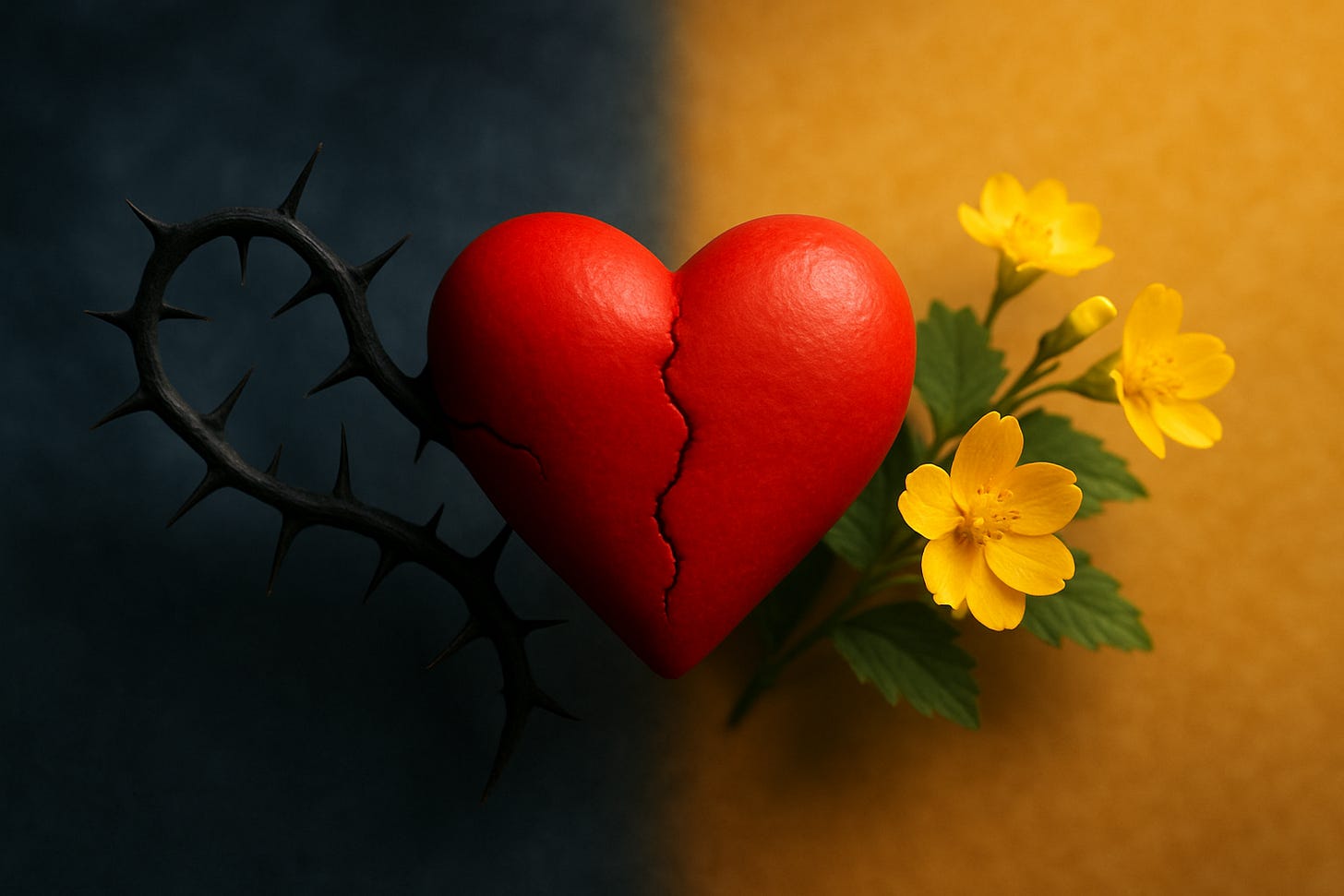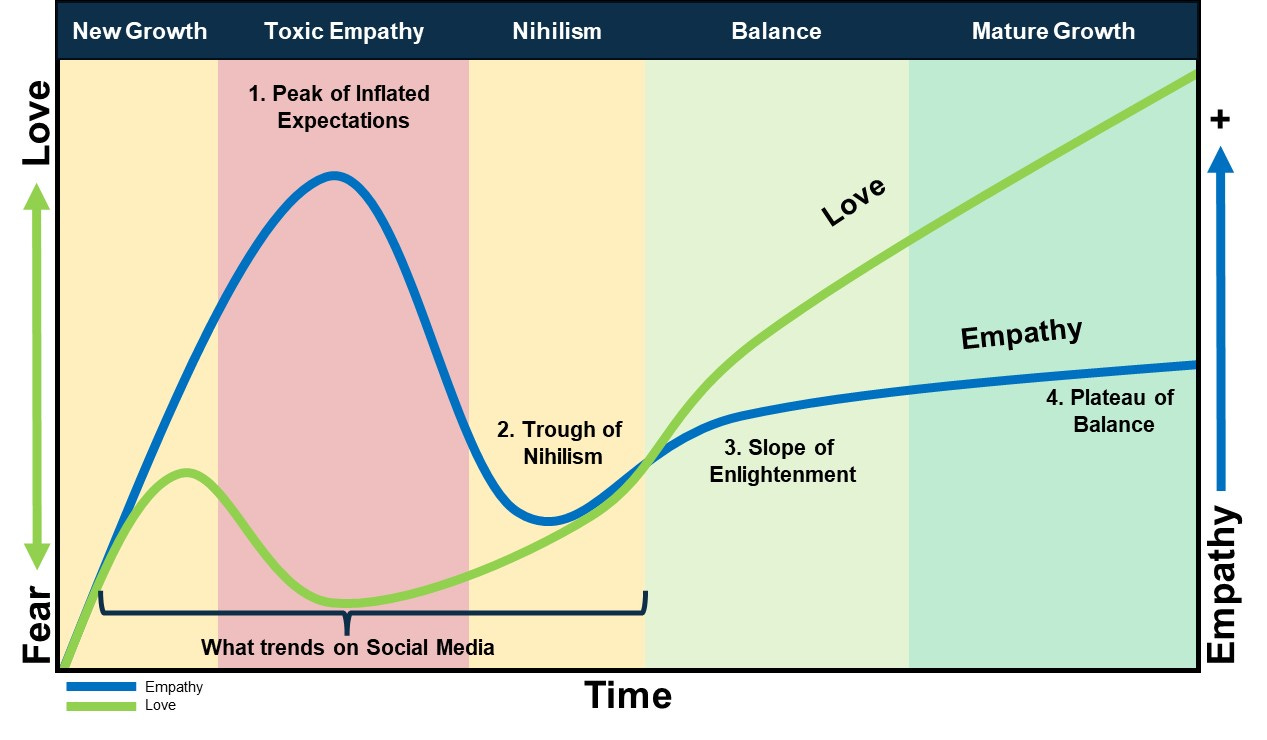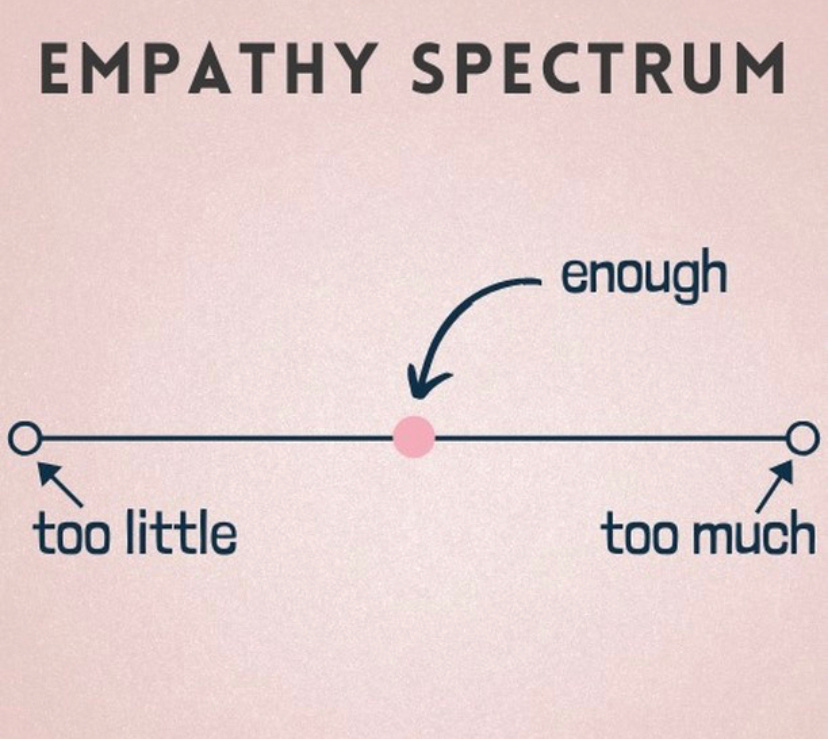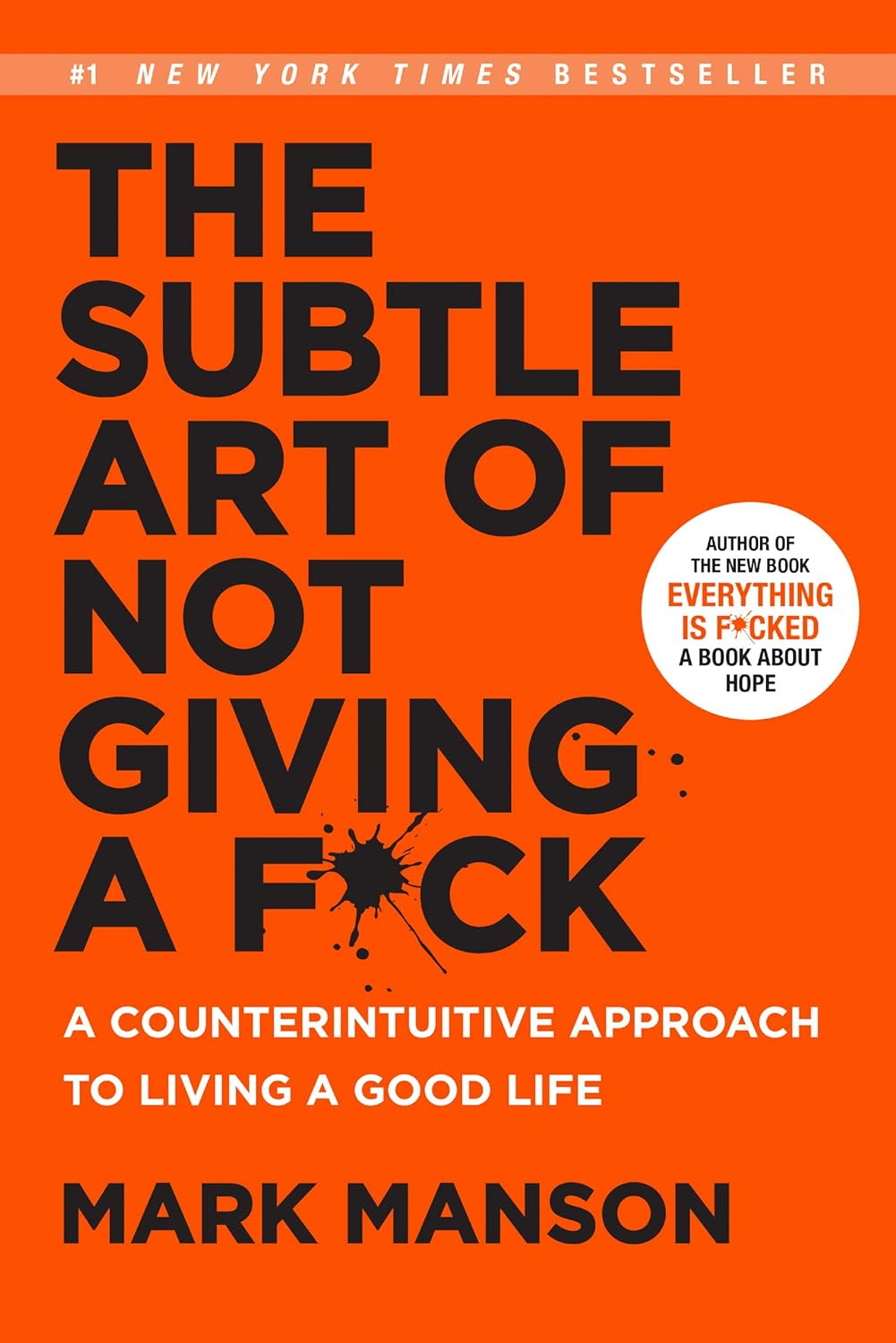Toxic Empathy
A Battle Royale
Welcome to Polymathic Being, a place to explore counterintuitive insights across multiple domains. These essays take common topics and explore them from different perspectives and disciplines and, in doing so, come up with unique insights and solutions. Fundamentally, a Polymath is a type of thinker who spans diverse specialties and weaves together insights that the domain experts often don’t see.
Today's topic is another Mixed Mental Art that digs into the toxic empathy that underpins and is weaponized within much of the social manipulation we feel today. We’ll focus on balancing empathy that retains your agency, keeps you grounded in a chaotic world, and allows you to mature into a deeper connection and love with those around you.
Intro
Much of our Emotional Intelligence training over the past thirty years has focused on empathy.1 It’s a great skill, and it just means “the ability to understand and share the feelings of another.” Empathy helps us connect with, relate to, and love other people. However, too often, our embrace of empathy results in the opposite of love. In fact, too often, empathy, instead of connecting, is weaponized to create divisions.
A few weeks ago, we explored the idea of a soul journey and Thomas Campbell’s idea that we are here to learn how to overcome entropy and grow from fear to love. Obviously, empathy is a critical tool for stepping away from fear and moving toward love. You won’t find very many people who’d argue against that. Even a simple search through Substack produces hundreds of essays like Empathy is Strength, Why Empathy is Key to Democracy, and Empathy Isn’t a Sin, It’s a Superpower, but what happens if empathy is unconstrained?
While the value of empathy is “the ability to understand and share the feelings of another,” it also leads to an increased feeling of connection and a good feeling of compassion. The challenge is that when this empathy spikes and you are flooded with the world's problems, there are a lot of problems in the world. Nature isn’t nice, trauma is endemic, there are wars, hunger, hate, violence, and more. The more you share in the feelings of others and the more you are exposed to the negatives in life, counterintuitively, this doesn’t result in more love; it results in fear. You can become overwhelmed with those feelings; this is where Toxic Empathy finds a fertile home.
I describe Toxic Empathy as a huge amount of empathy coupled with a high volume of fear. This is a hard problem to tease apart, so let’s start with a few thoughts based on the graphic I created, below:
Empathy is a net good, and being able to relate to others through shared feelings is a powerful positive force in our world.
I think our consciousness and application of Empathy follow the Gartner Hype Cycle.2 We start developing empathy and then, seeing the value, we quickly assume it will solve everything as long as we just ‘feeeeeeel’ more.
In the phase of Toxic Empathy depicted below, empathy can and is weaponized by external actors looking to exploit and within ourselves in attempts to attain status.
It’s only when we begin regulating empathy that true love can emerge
The danger zone is in that first, unregulated, spike of empathy. Without the underpinning maturity of reality, this spike ends, dropping our actual love into fear. We feel so much for everyone else, we are exposed to so many negatives, that our empathy is overloaded and results in fear, not love. This is Toxic Empathy.
🎧Prefer to listen? You can find these essays on all major podcast players!
Toxic Empathy
In one outcome of toxic empathy, you can lose your sense of who you are because you’ve internalized another person's feelings, and people will weaponize that empathy against you. The other outcome is that the fear causes you to weaponize your internal empathy for social signaling and positioning.
If you’re raising your eyebrows right now, for the first outcome, just consider social media where Clickbait, Fear P*rn, and PSYOPS are all angling to get you to share their emotional Triggers. They’re hijacking empathy and weaponizing it while at the same time feeding your fear. That’s because a combination of moral self-righteousness of feeling for others and a fear of a threat to others is one hell of a hormonal and intoxicating cocktail that undermines your agency and burns out your healthy empathy.
The second outcome3 is where the individual weaponizes their empathy to elevate their social status, often driven by fear of the fragility of their own standing.4 Nathalie Martinek PhD writes Hacking Narcissism where she explores topics like How to handle Cluster B behaviour on Substack and Empathetic Overload. She’s a great resource to dive deeper into empathy, and much of her writing focuses on the weaponization of emotions, especially empathy, in human relationships. She shares the need to balance empathy in the following graphic:
Ironically, weaponized empathy may result in the opposite of true empathy. Instead of being open, connected, and confident, a person may find themselves incredibly empathetic to their acceptable group and incredibly fearful and un-empathetic to everyone else.
I’ll point to a recent essay by Mark McGrath | OODA Strategist titled, The Guardian of Decay: How Broken Systems Use Nice People to Silence Truth, as a great example of this quandary. It shows a manifestation of Toxic Empathy as: “They speak gently while they shut you down.” Their language is cloaked in empathy, yet the result is anything but love. It’s toxic empathy fueled by fear.
When you combine both types of weaponized empathy, you have what I’d call Suicidal Empathy. It’s bad enough to lose your own agency;5 it’s even worse when you weaponize your remaining empathy in the process. Lest you think this is hyperbole, this is where the balance is so out of whack that people are willing to burn their civilizations to the ground out of a reaction to someone, somewhere, experiencing inequality that we see in Introducing the Social Injustice Warrior.
There’s a variable time element to consider when understanding Toxic Empathy. Some people spike earlier, and some people spike later. Heck, some people don’t spike at all! Eventually, a group will crest the spike and fall into what I call the Trough of Nihilism. These folks are emotionally exhausted and often carry an F-You attitude of cynicism that they must work through. The Orange and Red shaded sections are what make up much of social media. We have to break through to find genuine empathy.
Maturing to True Empathy
It’s at this point that you can begin to address the balancing act of Empathy and really grow a healthy love. Lest we think this is easy, I’d wager the Paraeto distribution exists, where 80% of us are in the Orange and Red shaded sections and only 20% are in the Green shaded sections.
Put another way, 80% of us are dealing with a rampaging emotional elephant, and it’s going to take a lot of effort to get it under control. This is why I’m a fan of Stoicism. I truly believe that a person can start anywhere on the left side of that diagram and, through mindfulness, self-control, and the ownership of one's own agency, can flatten that curve into a healthy, steady, and balanced maturation of empathy and love.
Another recommendation for maturing to genuine empathy is one of my favorite books, The Subtle Art of Not Giving a F*ck: by Mark Manson. It’s an excellent summary of many of the Mixed Mental Arts concepts we’ve explored before. In Mark’s words, A F*ck is a individual measure of empathy and he explains, in greater detail, the challenges of getting stuck in that Toxic Empathy Red Zone in the graphic. Simply put, we don’t have enough F*cks to give and need to manage them better.
To summarize a few key points from the book on balancing empathy:
Stop caring about trivial things - Make a list of what’s draining you emotionally and ask: “Is this really worth my energy?”
Embrace discomfort - Seek out meaningful problems rather than avoiding them. Growth often feels uncomfortable, and trauma can lead to antifragility.
Take radical responsibility - You have agency. The only person you can fix is yourself and you can’t force others to change to protect someone else. Own your reactions and choices even when life’s unfair.
Question your beliefs - Ask yourself regularly, “What if I’m wrong?” This fosters humility and openness to learning. Sacred cows do make the best burgers after all.
Keep mortality in mind - Use the thought of death as a filter: “If I only had a year to live, would I spend time on this?”
The first and last tips are powerful: Do I let this empathy control me, or do I grow to where I’m balanced internally so I can contribute to a better world? The essay How I Survived Suicidal Empathy explores this journey.
Summary
Toxic empathy is a real problem that can cause us to lose our own agency, get lost in the emotions of others, and even weaponize it out of fear of losing our social standing. Even more, external actors use that empathy to stoke fears that cause us to react instead of learning how to mature into balanced empathy and true love.
Thankfully, we found some tips on balancing empathy that retain your agency, keep you grounded in a chaotic world, and allow you to mature into a deeper connection and love with those around you.
Do you struggle with Toxic Empathy either personally or with others? I’d love to hear your story. Leave a comment and let us know!
Finally, a great quote to remember:
“You can get rid of a great number of your annoyances because they lie entirely in your own head. You will clear ample space for yourself by comprehending the scale of the universe in your mind, by observing the infinity of time, and by studying carefully the rapid change of each part of each thing – how short the time is from birth to dissolution, the time before it an abyss, the time afterwards also endless.”
—Marcus Aurelius, Meditations 9.32
Did you enjoy this post? If so, please hit the ❤️ button above or below. This will help more people discover Substacks like this one, which is great. Also, please share here or in your network to help us grow.
Polymathic Being is a reader-supported publication. Becoming a paid member keeps these essays open for everyone. Hurry and grab 20% off an annual subscription. That’s $24 a year or $2 a month. It’s just 50¢ an essay and makes a big difference.
Further Reading from Authors I Appreciate
I highly recommend the following Substacks for their great content and complementary explorations of topics that Polymathic Being shares.
Goatfury Writes All-around great daily essays
Never Stop Learning Insightful Life Tips and Tricks
Cyborgs Writing Highly useful insights into using AI for writing
Educating AI Integrating AI into education
Socratic State of Mind Powerful insights into the philosophy of agency
After writing this I came across discussions of Empathy vs. Sympathy that indicate we might be using the term empathy wrong. That said, I’m not changing this article and will address that difference in the future.
The Gartner Hype Cycle fits my anecdotal experience and follows a natural maturity path as we get used to using almost any tool or capability. At first, we think it’ll fix everything, and then we realize the unique capability of the tool.
There is a third outcome that I don’t have time to get into regarding this spike in an inter-relationship exemplified by dismissive and/or fearful-avoidant persons inside of romantic relationships. These are also toxic until/unless healed. Attachment theory is another angle on this topic. For this essay, we are looking more broadly at intra-relationships.
This is notable among women who use soft-power and tactics to influence and are often the biggest targets and perpetrators of toxic empathy as Anuradha Pandey explores more deeply in Women's moral superiority: a noble lie.
After I wrote this essay, I listed to a recent Joe Rogan Expereince Podcast #2308 with Jordan Peterson where they discuss the concept of Parasitic Empathy, a form of weaponized empathy where manevolent actors, often men, target the natural empathy of women in order to act on their Dark Triad behaviors. The topic is insightful and sobering to consider.









Insightful essay.
People on the political left often accuse those on the right of lacking empathy. Support ICE? You must not have empathy for immigrants. Refuse to get vaccinated against Covid? You must not have empathy for the elderly and the immunocompromised. More than a few leftists are in emotional crisis because they´ve convinced themselves that the great majority of folks in parts of the midwest and south are sociopaths.
Awesome article as always. I’ve been through all these stages and feel pretty happy that I am somewhere in the maturity phase. Hopefully I will continue here instead of sliding backward.
I’ve learnt that we don’t need to take up many causes if we want to become empathetic. Rather, we need to stick to one cause that truly matters to us instead of outraging like armchair activists over almost everything that we see on social media today. This is one of the main reasons why we tend to lose our empathy energy if that’s a thing.
Reminds me of Swami Vivekananda’s quote:
“The watchword of all well-being is not ‘I’ but ‘thou’. Who cares whether there is a heaven or hell, who cares if there is a soul or not . . .? Here is the world, and it is full of misery. Go out into it as Buddha did, and struggle to lessen it or die in an attempt.”